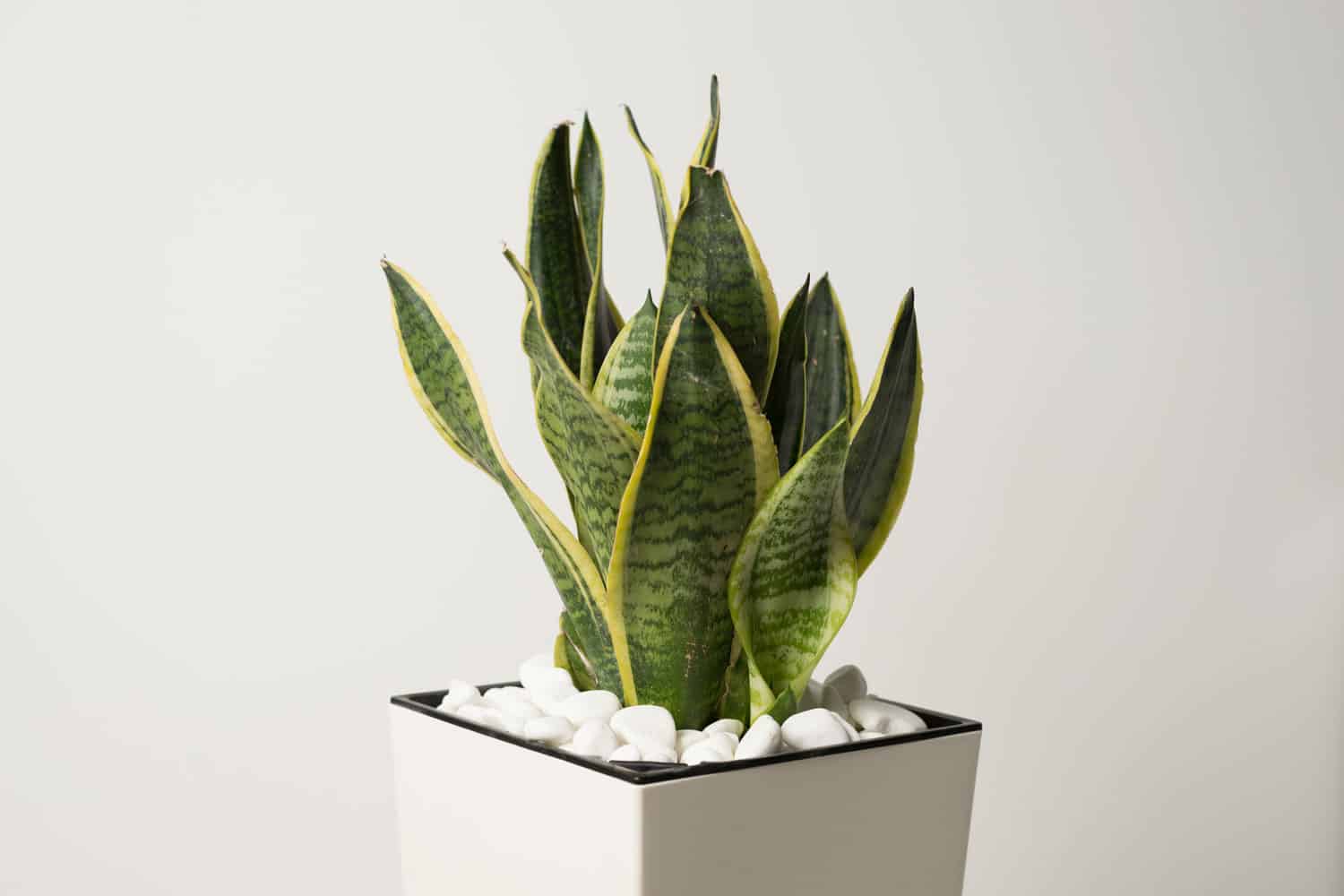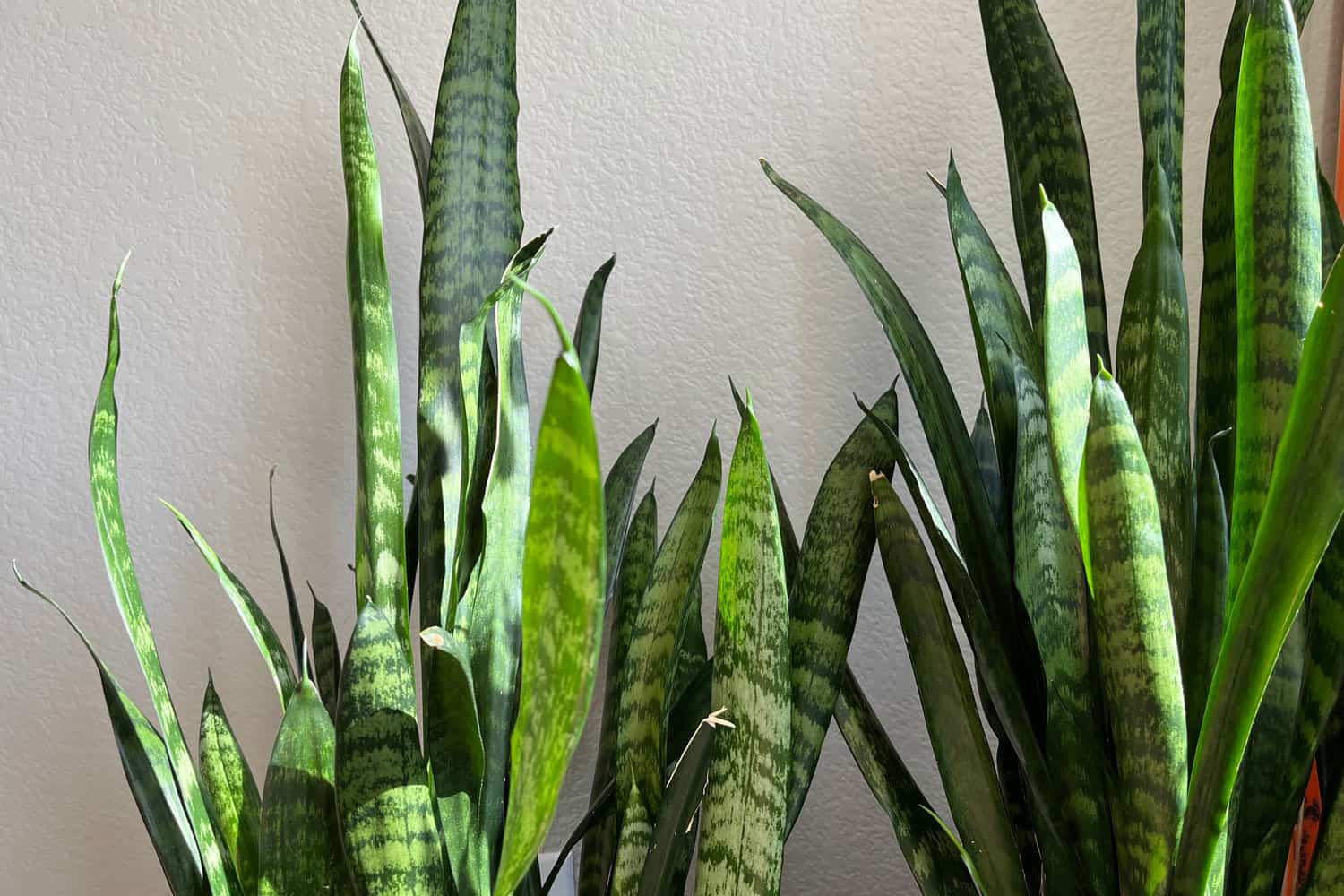Feeling stuck with your snake plant's growth? Don't worry – there are ways to unleash a growth spurt in your beloved Sansevieria.
Snake plants are known for their hardiness and low-maintenance nature. However, they can sometimes become stagnant and seem to stop growing.

Fret not, because with a little attention and care, you can help your snake plant continue to grow and maintain its beautiful appearance.
In this article, we'll explore practical and easy-to-implement tips to give your snake plant the boost it needs to thrive.
Why is Your Snake Plant Not Growing?
Sometimes snake plants experience a slow period of growth or even seem to be stuck in their development.
Don't worry, plants often go through cycles of growth and dormancy. There could be a few reasons why your snake plant is experiencing this pause.
Insufficient Light
First, consider the lighting in your plant's environment. Snake plants thrive in indirect sunlight but can also survive in low light conditions.
However, insufficient light can lead to slow or stagnant growth. Move your plant to a location that receives bright, indirect sunlight to encourage growth.
Wrong Watering Routine
Over-watering or under-watering can both cause a plant to become stuck in its growth. Snake plants are drought-tolerant but still require water to grow.
Water your plant thoroughly, then allow the soil to dry out before watering again. Be careful not to over-water, as this could cause the roots to rot.
If you're in this situation and expect root rot, read here for possible solutions: Overwatering Crisis: Saving Your Snake Plant from Root Rot
Temperature
Another factor that can hinder your snake plant's growth is temperature. These plants typically thrive in temperatures between 60-75°F.
Generally, it likes warm climates. If your home is too cold, your snake plant might struggle to grow. Make sure to keep your plant away from drafts or cold spots in your home.
Lack of Fertilizer
Lastly, don't forget about fertilization. Fertilizing your snake plant can provide it with essential nutrients and encourage growth.
Use a balanced fertilizer, following the instructions on the package, and remember that too much fertilizer can be harmful to your plant.
Ways to Boost Snake Plant Growth
It's disheartening when your green buddies don’t seem to thrive despite your care. Worry not! Sometimes, they just need a little extra nudge to shoot up.
Here are some ways you can unleash their growth spurt:
1. Right Pot Size
Snake plants prefer snug pots, and repotting them into slightly larger pots can often stimulate growth.
Ensure that the new pot is only 1-2 inches larger in diameter than the current one.
When repotting, be gentle to avoid damaging the roots and use fresh potting soil with good drainage.
Read here for more repotting information: The Ultimate Guide To Repotting Your Snake Plant: When And How
Watch this video for some great tips.
2. Nutrient Boost
A balanced, slow-release fertilizer applied during the growing season can do wonders.
Look for a fertilizer with a balanced ratio of nitrogen, phosphorous, and potassium.
Follow the instructions on the fertilizer packaging to avoid over-fertilization, which can be detrimental.
Here's a list of fertilizers to try: 14 Best Fertilizers For Snake Plants
3. Utilizing Aquarium Water
Aquarium water from a freshwater tank can be used to water snake plants. It contains dissolved nutrients and beneficial bacteria which can enrich the soil, enhancing growth and vitality.
Use the old water from your fish tank to water your snake plant; it’s an organic nutrient boost.
4. Charcoal Additive
Mixing a small amount of horticultural charcoal in the soil can improve the soil's texture and drainage, plus it acts as a mild fertilizer.
Horticultural charcoal can be mixed into the soil to help improve soil structure, absorb excess moisture and odors, which can in turn promote better growth conditions for snake plants.
Watch this video below to see how it's done.
5. Adequate Lighting
While snake plants are known for their low-light tolerance, they thrive when exposed to bright, indirect light.
If natural light is scarce, consider using a grow light to provide the necessary spectrum of light for growth.
6. Air Circulation
Good air circulation helps to keep pests and diseases at bay, and it can also encourage growth.
Ensure that your plants are spaced adequately and consider using a fan to improve air circulation, especially during the warmer months.
7. Adding Compost
Compost is an excellent organic fertilizer that's gentle on any type of plant, including snake plants.
It breaks down gradually, providing a steady supply of nutrients with the help of beneficial soil bacteria.
Compost can be mixed into the soil or applied as a top dressing.
8. Fish Emulsion
Fish emulsion is another organic fertilizer rich in nitrogen and other nutrients. It can be diluted and used as a liquid fertilizer for snake plants.
Just be sure to dilute the emulsion to prevent the possible concentrated fishy smell from spreading. You can also try a product that has a mild formulation.
You can water the plant outside and let it air out before bringing it back indoors.
Check out this Alaska fish emulsion all-purpose plant food on Amazon.
9. Worm Castings
Worm castings are a nutrient-rich organic fertilizer that can be mixed into the soil. They provide a variety of essential nutrients and improve soil structure.
Ideal Environment and Nutrient Boost
Every snake plant has its own unique needs and reactions to different growth techniques.

It might take some experimentation to discover what works best for your green companion.
By exploring the above conventional and unconventional methods, you may find the key to unlocking a growth spurt in your snake plant.
Happy gardening!


